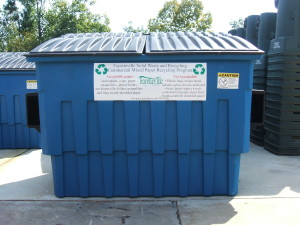 Investing In Commercial Recycling
Investing In Commercial Recycling
Over the last few years, commercial recycling companies and the industry of recycling management has experienced positive ROI. This, in addition to the focus on reducing carbon footprint, has resulted in growth of green businesses. However, little is known about the workings of commercial recycling companies and the status quo of related investment opportunities.
What it involves?
A layman concept would be that such a venture would include recycling of waste material that can range from scrap to metals. The economic tariff is quite similar to the way the commodity market works.
The value of the recycled commodity is directly dependent on the original commodity’s price. As a result, the resale value is made once the recycle process is completed. When expanded to large sales and recycling, this commodity market can result in a large profit yield.
The state of the market
This portion of the business is quite interesting because of recent trends. On one hand, the recycling of various materials is dependent on energy trading and the future of commodities.
On the business end, you’ll see that there is less risk involved. This is because commercial recycling can work even if the base commodities are not faring well. The reason is that the recycling trading index doesn’t go through the same variation as the original commodity does in the normal market.
Incentives and Benefits
It’s possible for investors to benefit from green initiatives and energy savings reforms set up by the state. When the energy prices are high, there’s a higher demand for recycled metals and other materials. This especially holds true for paper stock companies, re-purposed motor vehicle parts and electronics recycling industry.
Investors and businessmen associated with green initiatives also receive indirect benefits from financial companies and the state (click here for more financial info). It’s standard for them to receive reward travel credit cards, low interest bank accounts, tax incentives and other similar benefits.
Successful models
There are defined indexes for trading on commercial recycling. For instance, there’s the Canaccord Adams Recycling Index. Companies that have found success in this domain have done so through bulk strategy for specific commodities. They later transform the approach into market leadership.
The example of Advantage Metals Recycling is relevant in this regard. The company has managed to generate significant yields through its scrap metal recycling. They buy and sell on the recycled value of commodities bought as scrap and converted for new use.
The Future
The usage of software solutions has enhanced the trading platforms of commercial recycling industry. A lot of companies are looking for electronic recycling initiatives and re-purposing strategies that can enhance their ROIs.
Waste from not only metal, but also from plants like sugarcane (molasses) and corn is becoming quite significant. Expansion is being seen in the bio-fuel industry, which directly leads to the success of the recycling sector.
The mode of working of commercial recycling companies is very similar to commodity traders. During the last few years, there also has been special focus on comprehensive risk management systems (for investors). There is heavy usage of software to track indexes and generate reports in real time to examine the changing value of recycled materials.
Risk is mediated by setting price limits and also keeping in check the yields generated. So this is an exact business, from the investor’s point of view.